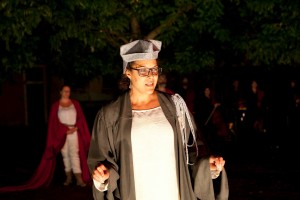VENICE AND THE GHETTO The Women in the Merchant
When we address The Merchant of Venice today, it is quite tempting to focus on the men. Let us reverse the gaze. Let us take a long look at the women. Let us consider the play as a romantic comedy that pursues a double ‘quest’ to ‘get the girl’. Is that the play’s ‘problem’? Is the ‘quest’ heroic or tawdry, the male questers Jasons — or pirates? Are the women trouble makers or trouble shooters? Is the elopement of Jessica the crisis that turns her father murderous? Is the ‘mercy’ the law clerk offers the appellant in court in place of vindication a saving grace that, denying him judicial killing, saving him from murder, preserves him from the irreparable mistake that (in Shakespeare) is always (pace Macbeth) a form of suicide? Does ‘Tarry, Jew’ have the women in man’s clothing merely reinstantiating the patriarchal law-of-the-father (parodied in the lottery to determine which of Portia’s suitors will be vindicated) that makes a mockery of ‘mercy’? Or are all of these binaries — that shadow the binaries the play sets up, Jew/ Christian, Venice/Belmont, law/mercy, profligacy/usury, the prodigal wastrel/the careful father — finally incommensurate with the complexities the play traffics in?
*Carol Chillington Rutter is a professor at Warwick Unversity. This article was published in the booklet by Ca’ Foscari University of Venice, Compagnia de’ Colombari and Committee for the 500 years of the Ghetto on the occasion of the new production of “The Merchant of Venice” performed for the first time in the Ghetto. The picture is by Andrea Messana.

